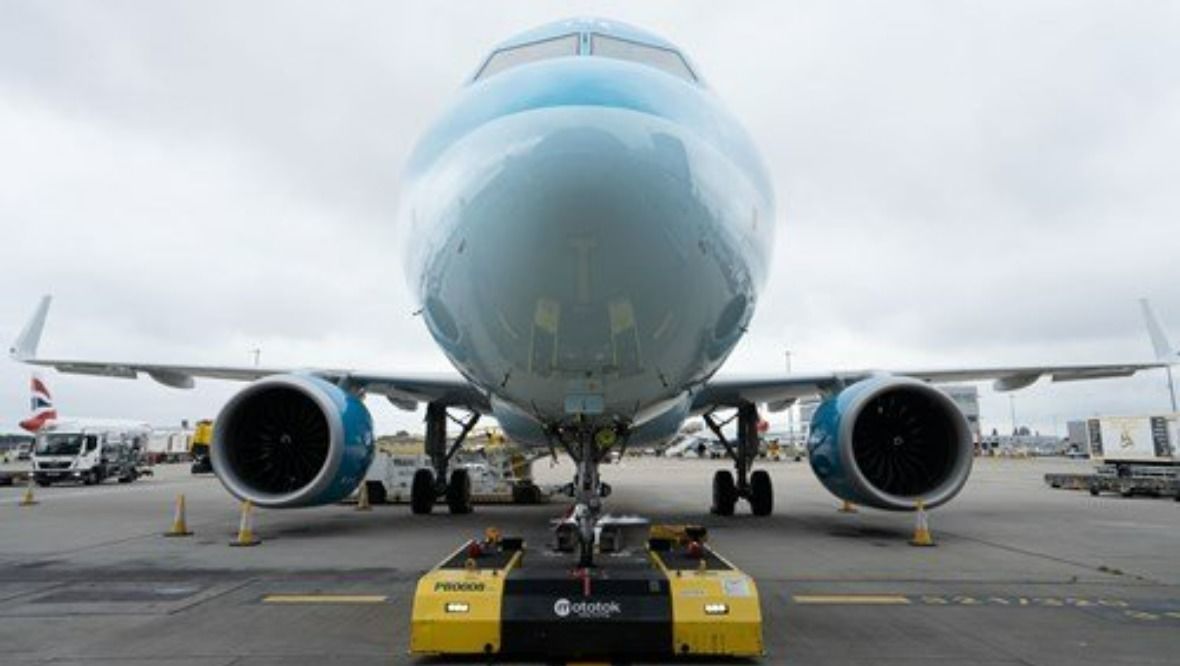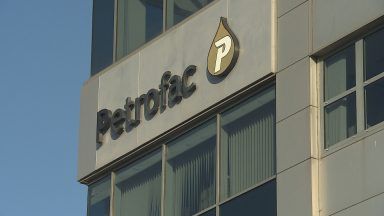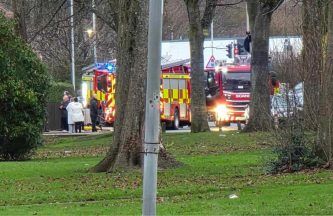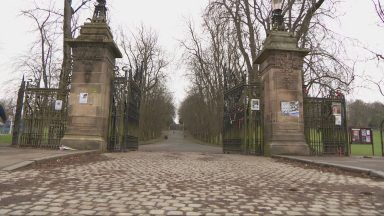Recycled cooking oil helped fuel what has been described as the “perfect flight” between London and Scotland.
British Airways (BA) said the 52-minute passenger service from Heathrow to Glasgow Airport was “carbon neutral” due a combination of sustainable fuel, an optimised flightpath, electric vehicles and CO2 offsetting.
Compared to the same journey in 2010, the flight produced 62% fewer emissions, according to British Airways and air traffic controllers at NATS.
Glasgow Airport bosses and BA said the flight was designed to demonstrate progress being made by the aviation industry to cut emissions as world leaders prepare to gather in Glasgow for crunch climate talks at COP26.
However, environmental campaigners described the idea of a “perfect flight” as “complete fantasy”.
What made it the ‘perfect flight’?
- Sustainable fuel made from recycled waste cooking oil was mixed with traditional jet fuel to meet industry standards;
- The plane was an Airbus A320neo, which is said to be the quietest and most efficient aircraft in the BA fleet for short-haul journeys;
- It has lighter seats and catering trollies, while in-flight manuals and magazines have been replaced by digital downloads, reducing fuel use, BA said;
- The plane was pushed back at Heathrow using an electric vehicle, while only one of its engines was used to taxi to the runway, halving the amount of power used.
- Air traffic controllers at NATS directed the plane on its climb and descent, to avoid levelling off and unnecessary fuel burn;
- Computer systems worked out the best altitude to make the journey more efficient.
The passenger flight left Heathrow at 10.36am on Tuesday morning, before landing in Glasgow at 11.28am.
Derek Provan, chief executive of AGS Airports Ltd, which owns Glasgow Airport, said: “This flight demonstrates the progress the industry has made during the last decade and how we can work collectively to decarbonise aviation.
“As one of the UK’s largest airport groups, we are committed to achieving net-zero by mid 2030s. This involves decarbonising our own infrastructure, including the roll out of fixed electrical ground power, which is powered using 100% renewable energy sources.”
‘Real progress’
British Airways said the experiment – which involved fuel giant BP and plane manufacturer Airbus – offered a “glimpse into the future” of commercial aviation.
BA chairman Sean Doyle said: “By working together with our industry partners, we’ve delivered a 62% improvement in emissions reductions compared to a decade ago. This marks real progress in our efforts to decarbonise and shows our determination to continue innovating.”
‘Complete fantasy’
Campaign group Aviation Environment Federation reacted with scepticism to the airline and airport’s claims.
Policy director Cait Hewitt said: “The idea that we’re anywhere near a ‘perfect flight’ is a complete fantasy. The planes of today are noisy, polluting and carbon-intensive and the industry doesn’t yet have the technology on hand to solve any of those problems.
“Turning used cooking oil into aviation fuel might help reduce waste and recycle some carbon, but once it’s burned, it makes just as much CO2 as kerosene.
“And there really isn’t enough chip fat around to power the world’s aviation fleet.”
Follow STV News on WhatsApp
Scan the QR code on your mobile device for all the latest news from around the country


 Contributed
Contributed

























